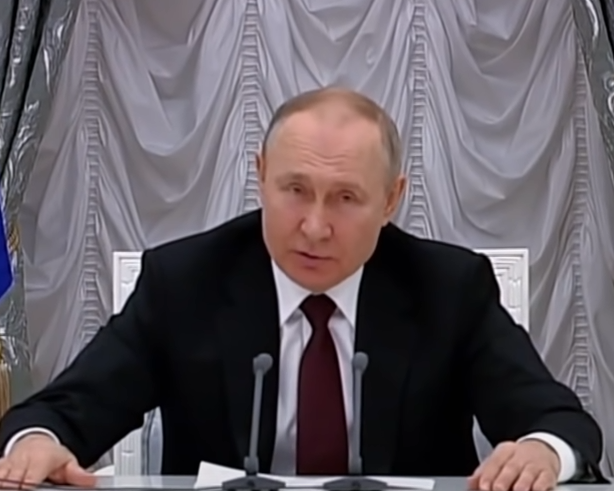Vladimir Putin: Russian strongman stuck in USSR’s past

Russian President Vladimir Putin is in the spotlight after he declared war on Ukraine and sent in his military to topple Ukraine’s pro-West government. As leaders and political pundits decry Putin’s invasion and engage in name-calling, there is not much said about what led Putin to this moment.
Putin, or Vladimir Vladimirovich Putin, was born in 1952 in the U.S.S.R. and went to college at Leningrad University where he studied law He was recruited by the KGB, or the Soviet Union’s intelligence apparatus, and officially worked for them for fifteen years as a foreign intelligence officer.
During his intelligence career, he was stationed for six years in Dresden, East Germany and was involved in anti-Western counter-espionage operations. According to some reports, one of his primary tasks was to work with neo-Nazi militants in West Germany who sought to create unrest and sow discord there. Although many of the ringleaders were caught, it accomplished its goal of wasting West German resources and attention.
When the Berlin Wall fell in 1991, the KGB hurriedly tried to move its records from East Germany back to the Soviet Union. If it couldn’t move the records, they had to burn the records to avoid capture and dissemination by the Soviet Union’s enemies and angry East German civilians. Putin shipped important records from the Dresden office to the Soviet Union before going back to his homeland.
After his retirement from intelligence work, Putin worked for his former university tutor, Anatoly Sobchak. Sobchak became the first democratically-elected mayor of St. Petersburg (which city changed its name from Leningrad). Sobchak was a key figure in the reformist perestroika movement, which led Putin to be an avowed supporter of Soviet reformer Mikhail Gorbachev. During the term of the first democratically-elected Russian Federation President Boris Yeltsin, Putin toiled away in the background as a presidential staff administrator. Yeltsin appointed Putin as the director of the FSB, the KGB’s successor. When Yeltsin gave up power, he anointed Putin as his successor in 1998.
Much of Putin’s success came when he beat down separatist Muslim Chechen rebels in Chechnya, which involved military actions that the West considered egregious abuse of human rights.
Since that time, Putin has been the de-facto dictator of Russia. He alternated as President and Prime Minister with an ally named Dmitry Medvedev, but in 2012, Putin essentially became president-for-life.
In the buildup before the war in Ukraine, sixty-nine-year-old Putin falsely claimed that Ukraine’s government was run by “thugs” and “neo-Nazi” fascists, even though Ukraine’s president Zelensky was democratically-elected and is Jewish.
Ironically, Putin once worked with neo-Nazis during the Cold War as a part of his KGB service and should know the difference between Jews and neo-Nazis, but it is an example of Putin’s misinformation warfare strategy.
But much of his public rhetoric about Ukraine exposed Putin’s nostalgia for the Soviet Union and its once-powerful status as the dueling superpower opposite of the United States. Some of Putin’s critics point out that the Russian dictator claimed that Ukrainian sovereignty and identity is nonsensical because it was created by the Soviets. In Putin’s mind, Ukraine was created by the Soviet Union, and therefore, it should not be an independent country.
With U.S. intelligence estimating that about 7,000 Russian military servicemembers dead in the month-long invasion, Putin’s intent to return Russia to the alleged glories of its Soviet past is not going to plan.




